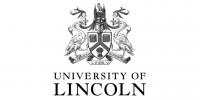MSc Forensic Psychology
This MSc focuses on case formulation and the applied aspects of forensic psychology. There is an emphasis on working with different groups, including children/adolescents, violent or sexual offenders, and those with forensic mental health concerns.
The programme has a clear focus on practice-based topics in forensic psychology. Students are able to conduct a research project alongside academics who are active researchers in their fields. Areas of expertise amongst staff include understanding deception and interviewing skills; investigative and courtroom processes; sexual fantasy and sexual offending; and online sexual exploitation material.
The School’s forensic psychology team draws on the expertise of a range of practitioners working in applied forensic psychology settings to provide specialist input into the programme.
Campus Information
Brayford Pool campus
Our stunning Brayford Pool campus is situated in the city centre with academic buildings, accommodation, shops, restaurants and cinema all within walking distance.
Intakes
- Sep
Application Processing Time in Days: 14
Application Process
Minimum English Language Requirements
| English Level Description | IELTS (1.0 -9.0) | TOEFL IBT (0-120) | TOEFL CBT (0-300) | PTE (10-90) | |
|---|---|---|---|---|---|
| Expert | 9 | 120 | 297-300 | 86-90 | |
| Very Good | 8.5 | 115-119 | 280-293 | 83-86 | |
| Very Good | 8 | 110-114 | 270-280 | 79-83 | |
| Good | 7.5 | 102-109 | 253-267 | 73-79 | |
| Good | 7 | 94-101 | 240-253 | 65-73 | |
| Competent | 6.5 | 79-93 | 213-233 | 58-65 | |
| Competent | 6 | 60-78 | 170-210 | 50-58 | |
| Modest | 5.5 | 46-59 | 133-210 | 43-50 | |
| Modest | 5 | 35-45 | 107-133 | 36-43 | |
| Limited | 4 | 32-34 | 97-103 | 30-36 | |
| Extremely Limited | < 4 | < 31 | < 93 | < 30 |
Job Opportunity Potential
Graduates of this programme may pursue careers in many different forensic settings and roles.
This MSc acts as Stage 1 training for those with Graduate Basis for Chartered membership accredited psychology degrees to become a Chartered Forensic and HCPC Registered Psychologist.
PSW Opportunity
UK has announced 2 years PSW for 2021 graduates.
Admission Requirement / Eligibility Criteria
First or upper second class honours degree in psychology. All offers made to those still completing their BSc are contingent upon the applicant meeting these requirements.
To use the MSc in Forensic Psychology as Stage 1 in the route towards becoming a Chartered Forensic Psychologist, an essential pre-requisite is that you must be eligible for Graduate Basis for Chartered Membership (GBC) with the British Psychological Society.
This means that you will have undertaken an undergraduate degree in psychology approved by the British Psychological Society. Those without an approved psychology degree must undertake a BPS accredited conversion course, before stage two training can begin.
Whilst the conversion course can be undertaken after the MSc, completion of the MSc assumes a base level knowledge of psychological theory. Therefore, applications without a BPS accredited psychology degree should consider undertaking the conversion prior to the completion of the MSc. However, some individuals without GBC may choose to take the MSc to further their understanding of Forensic Psychology but should be aware that the course could not then be used to work towards Chartership as a Forensic Psychologist.
You should normally have at least an upper second class degree in psychology. It is helpful if you have experience (voluntary or paid) working in a forensically relevant area or have undertaken a research project relevant to the forensic psychology field.
Bangladesh
Prospective students require one of the following qualifications:
- Successful completion of a 4 year Bachelor's degree from a recognized institution. A minimum of 65% overall, or a GPA of 3.5, is generally considered comparable to a 2:1. A minimum of 60% overall, or a GPA of 3.0, is generally considered comparable to a 2:2.
- Successful completion of a Master's degree from a recognized institution, preceded by a 3 year Bachelor's degree
English Language Requirements
- IELTS 6.0 (with no less than 5.5 in each band score). Please note that some courses require a higher IELTS score.
India
Prospective students require a good Bachelor's degree from a recognized institution in India (or the UK) with a minimum grade of 50%.
English Language Requirements
Prospective students require one of the following qualifications:
- A minimum of 70% in the Standard XII awarded by CISCE or CBSE (for courses requiring IELTS 6.0). These qualifications should usually have been completed no more than 5 years before enrolling at the University of Lincoln. However, this requirement will usually be waived for applicants who achieved the required High School English grade and subsequently completed a degree in their home country that was taught fully in English. An official letter from the previous institution, confirming that the degree was taught in English, may be required.
- IELTS 6.0 (with no less than 5.5 in each band score). Please note that some courses require a higher IELTS score.
Nepal
Entry requirements vary depending on the course. Typically we require a good Bachelor (Hons) degree from a recognised institution with a minimum of 60% (4-year Bachelor degree).
English Language Requirements
Prospective students require the following qualifications:
- IELTS 6.0 (with no less than 5.5 in each band score). Please note that some courses require a higher IELTS score.
Pakistan
Entry requirements for postgraduate (Master's degree) programs vary by course, although typically range from a GPA of 2.5 – 3.0 (out of 4) if you have studied at a Public university*.
Specific information on postgraduate entry requirements can be found on the individual program pages.
For comparison purposes, a GPA of 2.5 (out of 4) is the equivalent of a 2:2 honors degree. A GPA of 3.0 (out of 4) is the equivalent of a 2:1 honors degree.
English Language Requirements
- English language requirements vary by program although typically range from IELTS 6.0 – 7.0 (or equivalent).
Students who do not meet the above English language requirements may be eligible for entry onto a Pre Sessional English and Academic Study Skills (PEASS) course.
Sri Lanka
Prospective students require a good Bachelors's degree from a recognized institution.
English Language Requirements
- IELTS 6.0 (with no less than 5.5 in each band score). Please note that some courses require a higher IELTS score.
Interviews
Candidates who meet the entry requirements will be invited to the University of Lincoln for an interview with two members of the Course team (normally the Programme Leader and one other staff member).
The interview will typically cover applicants:
- - Interests in forensic psychology
- - Knowledge of basic psychological theory
- - Knowledge of research methods and ability to talk about your own undergraduate research (either completed or in progress)
- - Students' own research interests and subjects within psychology that interest you
- - Students' ability to apply basic psychological theory to the solving of real-world problems.
Interview questions are designed to help us understand a student’s level of knowledge of psychological theory and the ability to apply it to real-world problems. For example, questions might take the form of “pick a psychological theory and use it to explain X; how would you design a study to test that hypothesis?”
For these questions there is no right or wrong theory to pick. We are, however, interested in a student’s knowledge of the theory they choose and how they use it to attempt to solve the problem. In this regard, we are not expecting students to fully explain “X” but are more interested in how they attempt to solve the problem.
Applicants should expect to be able choose, explain, and discuss psychological theories and research topics that are of interest to them.
Whilst we encourage applicants to attend face-to-face interviews, for those who are based overseas or are unable to travel to the University of Lincoln, there may be an opportunity to undertake an online interview.
- Course Code: FRSPSYMS
- Course Type: Full Time
- Course Level: Masters/PG Degree
- Duration: 01 Year
-
Total Tuition Fee:
16000 GBP
Annual Cost of Living: 9207 GBP
Application Fee: N/A
Similar Programs
- MSc Contemporary Physiotherapy Practice at University of Lincoln
- MSc Cloud Computing at University of Lincoln
- MSc Advanced Clinical Practice at University of Lincoln
- MSc Nursing (Pre-registration - Adult) at University of Lincoln
- MSc Nursing (Pre-registration - Child) at University of Lincoln
- MSc Nursing (Pre-registration - Mental Health) at University of Lincoln

